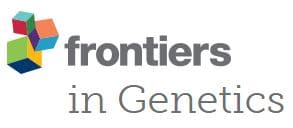 A recent review article published in Frontiers in Genetics offers a great look at the landscape of long-read sequencing. Authors Tuomo Mantere, Simone Kersten, and Alexander Hoischen from Radboud University Medical Center in the Netherlands focus on emerging applications in medical genetics for long-read technologies.
A recent review article published in Frontiers in Genetics offers a great look at the landscape of long-read sequencing. Authors Tuomo Mantere, Simone Kersten, and Alexander Hoischen from Radboud University Medical Center in the Netherlands focus on emerging applications in medical genetics for long-read technologies.
“With the recently demonstrated success in identifying previously intractable DNA sequences and closing gaps in the human genome assemblies, long-read sequencing (LRS) technologies hold the promise to overcome specific limitations of NGS-based investigations of human diseases,” the scientists write. “LRS has the potential to grow into a technology that is used not only to produce high-quality genome assemblies (i.e., the platinum human reference genome), but also to capture clinically relevant genomic elements which are problematic for conventional approaches.”
The team cites four particular use cases for which long-read sequencing is particularly well suited, diving into detail about each:
- Discovering disease-causing structural variants missed by short-read technologies
- Direct and accurate sequencing of repeat expansions or GC-rich regions
- Enhanced phasing of variants to determine haplotypes and parent of origin
- Distinguishing between genes and pseudogenes
The review highlights peer-reviewed research publications describing novel discovery across each application in a wide variety of disease areas including: X-Linked Parkinsonism, ALS and FTD, SCA10 and Parkinson’s disease, Myotonic dystrophy, Bardet-Biedl syndrome, and Fragile X disorders.
The authors also examine transcriptome analysis, indicating that long-reads have been successfully employed to sequence full-length mRNA transcript isoforms as a complement to existing short-read RNA sequencing approaches. “Ultimately, this knowledge can be implemented to improve WES/WGS-based variant filtering, prioritization and prediction of their functional impact,” Mantere et al. report.
The authors conclude with a prediction that, in the future, “the broader use of [targeted long-read sequencing] could significantly increase the diagnostic yield of genetic testing and discover novel disease genes.”